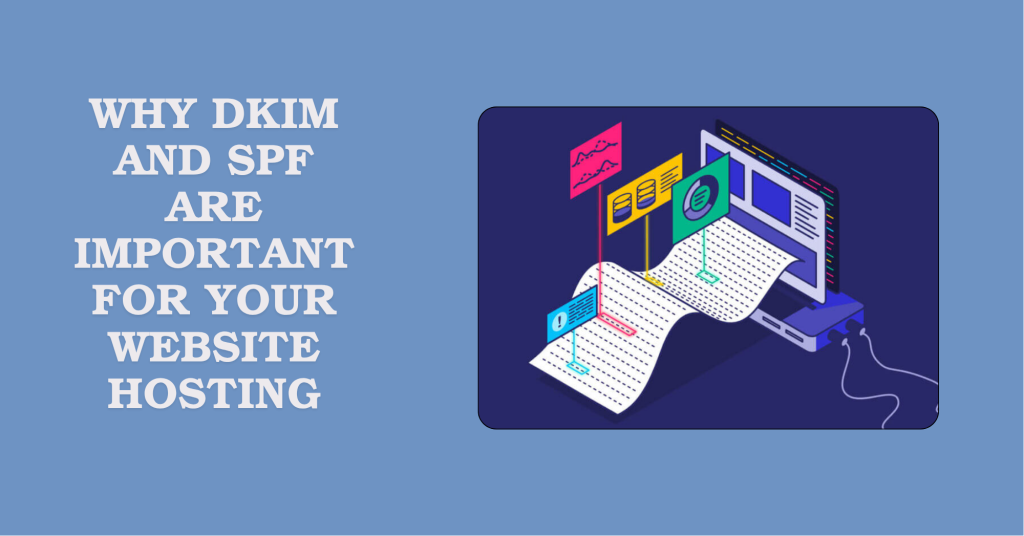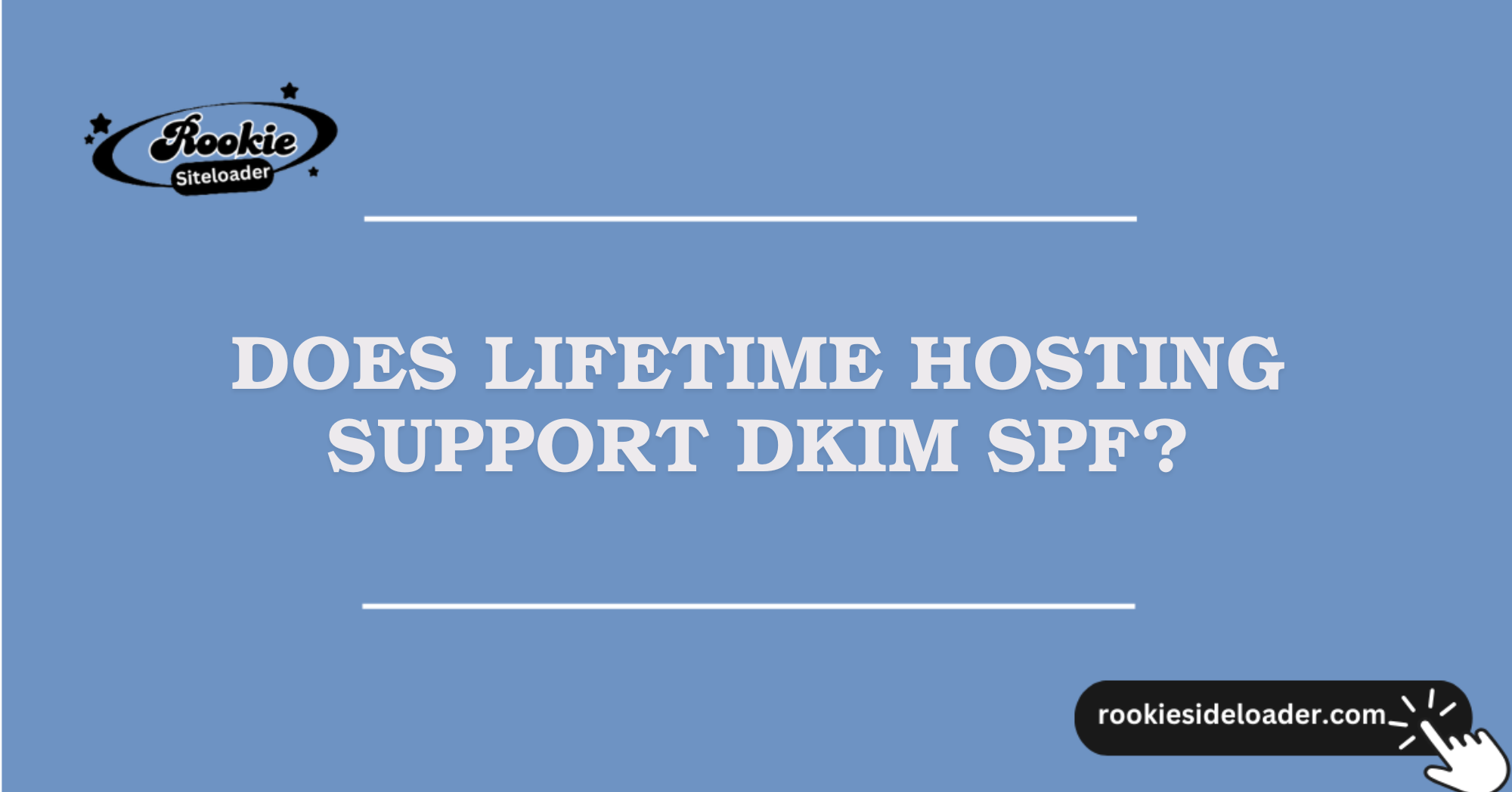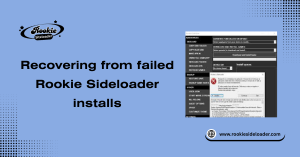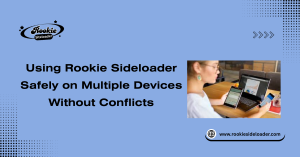Table of Contents
ToggleIntroduction:
When searching for hosting, most people focus on price, speed, and storage. Lifetime Hosting are popular because they promise long-term savings with a single payment. But there’s one important factor many overlook: email security.
If you use a domain-based email, you want your messages to be trusted and delivered reliably. That’s where DKIM and SPF come in. These tools help secure your emails, improve delivery, and protect your domain.
In this article, we’ll explain what DKIM and SPF are, why they matter, whether lifetime hosting supports them, and how to set them up. If you’re considering a lifetime hosting deal with custom email, this guide is for you.
What Are DKIM and SPF?
To keep your emails safe when using hosting, it’s helpful to be aware of DKIM and SPF. These tools protect your messages from being marked as spam or used by someone else. They also boost your domain’s reputation, making sure your emails reach your users’ inboxes.
DKIM – DomainKeys Identified Mail
DKIM is a method that adds a unique digital signature to every email sent from your domain. This signature is stored in your domain’s DNS settings. When someone receives your email, their email server checks this signature. If it matches your domain record, the email is accepted as valid.
This system prevents fake emails from being sent in your name. It also helps your emails reach the inbox instead of the spam folder. For business owners using lifetime hosting, this feature is especially important because it protects your reputation and your customers.
SPF – Sender Policy Framework
SPF adds another layer of email protection. It allows you to specify which servers are authorized to send emails on behalf of your domain. If someone tries to send an email using your domain from an unauthorized server, the email will be blocked or marked as suspicious.
Together, DKIM and SPF ensure your emails are authentic, secure, and delivered as intended. These protections are critical for anyone using domain-based email on a lifetime website hosting plan.
How can you determine if DKIM and SPF are set up for your hosting?
If your hosting uses cPanel, go to the “Email Deliverability” section. There, you’ll see whether SPF and DKIM are enabled or need to be fixed.
You can also use free tools like:
- mail-tester.com
- mxtoolbox.com
These tools analyze your emails and indicate whether your authentication settings are correctly configured.
Related Article: How can I get Rookie’s Sideloader on Mac?
Why DKIM and SPF Are Important for Your Website Hosting
Here’s why DKIM and SPF matter when you’re choosing lifetime website hosting.
Email Deliverability
- Without DKIM and SPF, many emails are mistakenly directed to the spam folder.
- When you use them, your emails are more likely to be trusted and delivered.
Protecting Your Domain Name
- Without SPF, anyone can pretend to send emails from your domain.
- That could damage your reputation and even hurt your SEO.
Customer Trust
- If your customers receive fake emails from your domain, they may lose trust in you.
- With DKIM and SPF, your customers get genuine messages from you.

How to Set Up DKIM and SPF in Lifetime Hosting
Without DKIM and SPF:
- Your emails may go to spam
- Email providers may block your messages
- Hackers could send fake emails using your domain
- Your brand reputation can be damaged
If you’re using domain-based email from your lifetime website hosting, setting up DKIM and SPF is not optional; it’s essential.
What to Look for in a Lifetime Hosting Deal
Free lifetime hosting plans often come with numerous restrictions. Many do not offer email features or DNS controls, which means you might not be able to set up DKIM and SPF. If you require reliable email delivery, consider a paid lifetime hosting plan that includes these features. For example, ARZHost provides lifetime hosting with full DNS access, allowing you to easily enable secure email features such as DKIM and SPF.
Best Practices When Using Lifetime Web Hosting for Email
SPF: tells which servers can send emails from your domain
DKIM: confirms the email wasn’t changed and is really from your domain
DMARC: combines SPF and DKIM to set rules for how email failures are handled
Frequently Asked Questions (FAQs)
What is DKIM, and why does it matter for lifetime hosting?
DKIM adds a digital signature to your emails, confirming authenticity and helping messages reach your recipients’ inboxes. For domain email on lifetime hosting, DKIM helps prevent your emails from being marked as spam.
Do all lifetime web hosting plans support DKIM and SPF?
No, not every plan does. Some lifetime hosting deals offer limited features and don’t allow email or DNS control. You should always verify that DKIM and SPF are supported before purchasing the plan.
How can I verify that DKIM and SPF are active on my hosting account?
If your hosting uses cPanel, check under “Email Deliverability” or send a test email using Mail Tester or MXToolbox to see if DKIM and SPF are active.
Can I manually add DKIM and SPF?
Yes, if your hosting allows DNS access, you can enter the records provided by your email or hosting provider. Some providers may be able to help set them up.
What happens if I don’t set up DKIM and SPF?
Your emails may be redirected to spam or blocked. Additionally, someone else could send forged emails using your domain. This can damage your reputation and disrupt business communication.
Do free lifetime hosting plans include these features?
Most free plans are limited and don’t offer proper email or DNS tools. You typically need a paid lifetime hosting plan to receive full DKIM and SPF support.
What’s the role of DMARC along with DKIM and SPF?
DMARC enhances protection by working with DKIM and SPF. It enables you to establish rules for handling emails that fail authentication checks. It is a useful addition if supported by your hosting provider.
Conclusion:
In summary, lifetime hosting can be a smart choice if it includes the right features. DKIM and SPF are crucial for keeping your email safe and ensuring your messages are delivered. Protect your online reputation by ensuring that your hosting plan supports custom email domains, DNS access, and security tools such as DKIM and SPF.
Make email protection a priority to ensure your business communication remains secure in the long run. Pick a provider that offers both reliable hosting and secure email delivery.















